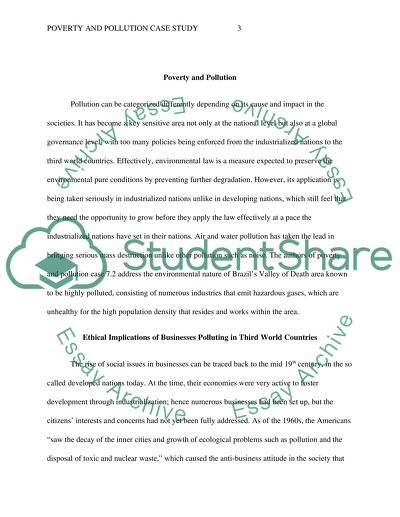Cite this document
(Poverty and Pollution: Human Right to a Clean and Safe Environment Case Study, n.d.)
Poverty and Pollution: Human Right to a Clean and Safe Environment Case Study. Retrieved from https://studentshare.org/environmental-studies/1469337-poverty-and-pollution-case-study
Poverty and Pollution: Human Right to a Clean and Safe Environment Case Study. Retrieved from https://studentshare.org/environmental-studies/1469337-poverty-and-pollution-case-study
(Poverty and Pollution: Human Right to a Clean and Safe Environment Case Study)
Poverty and Pollution: Human Right to a Clean and Safe Environment Case Study. https://studentshare.org/environmental-studies/1469337-poverty-and-pollution-case-study.
Poverty and Pollution: Human Right to a Clean and Safe Environment Case Study. https://studentshare.org/environmental-studies/1469337-poverty-and-pollution-case-study.
“Poverty and Pollution: Human Right to a Clean and Safe Environment Case Study”, n.d. https://studentshare.org/environmental-studies/1469337-poverty-and-pollution-case-study.


